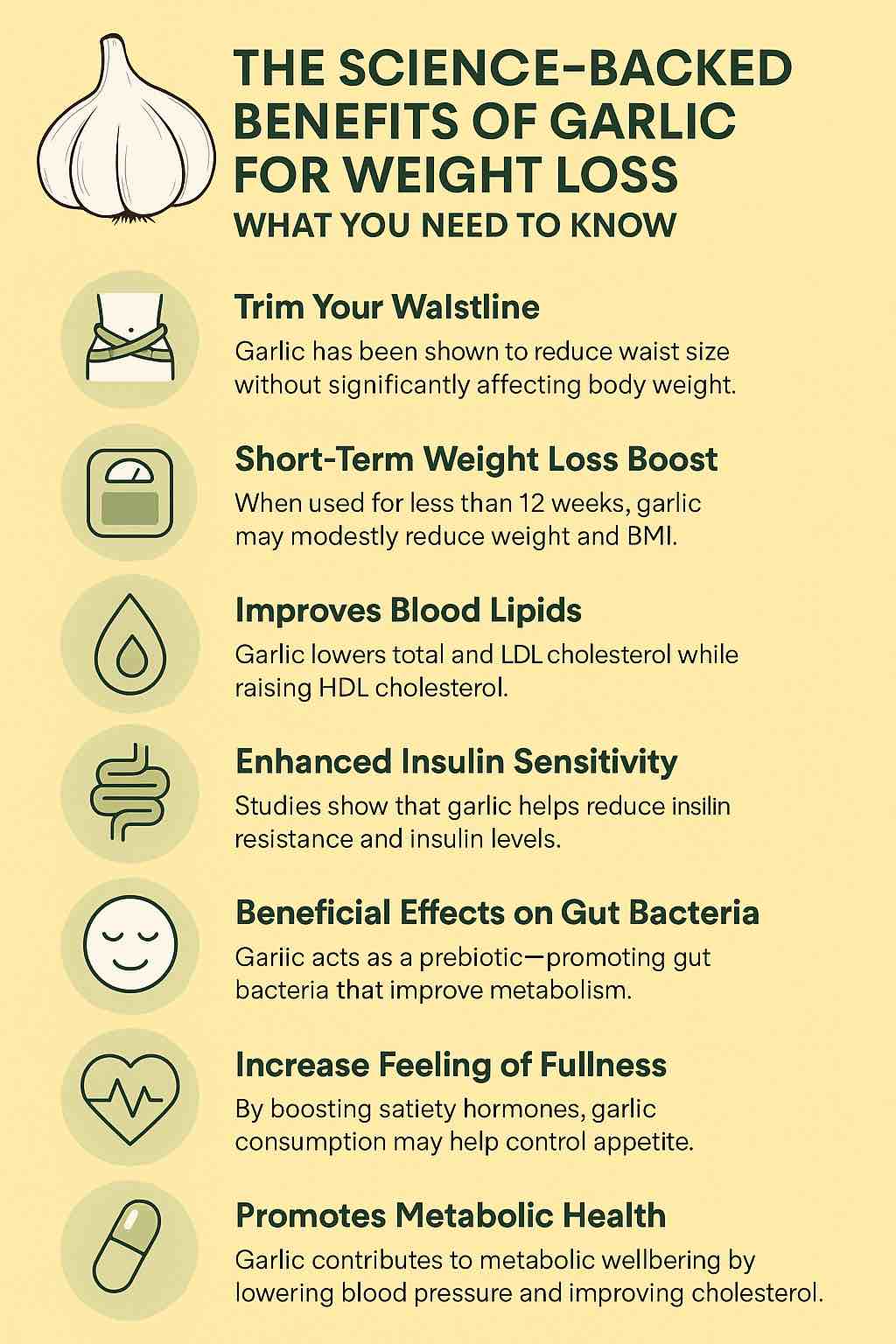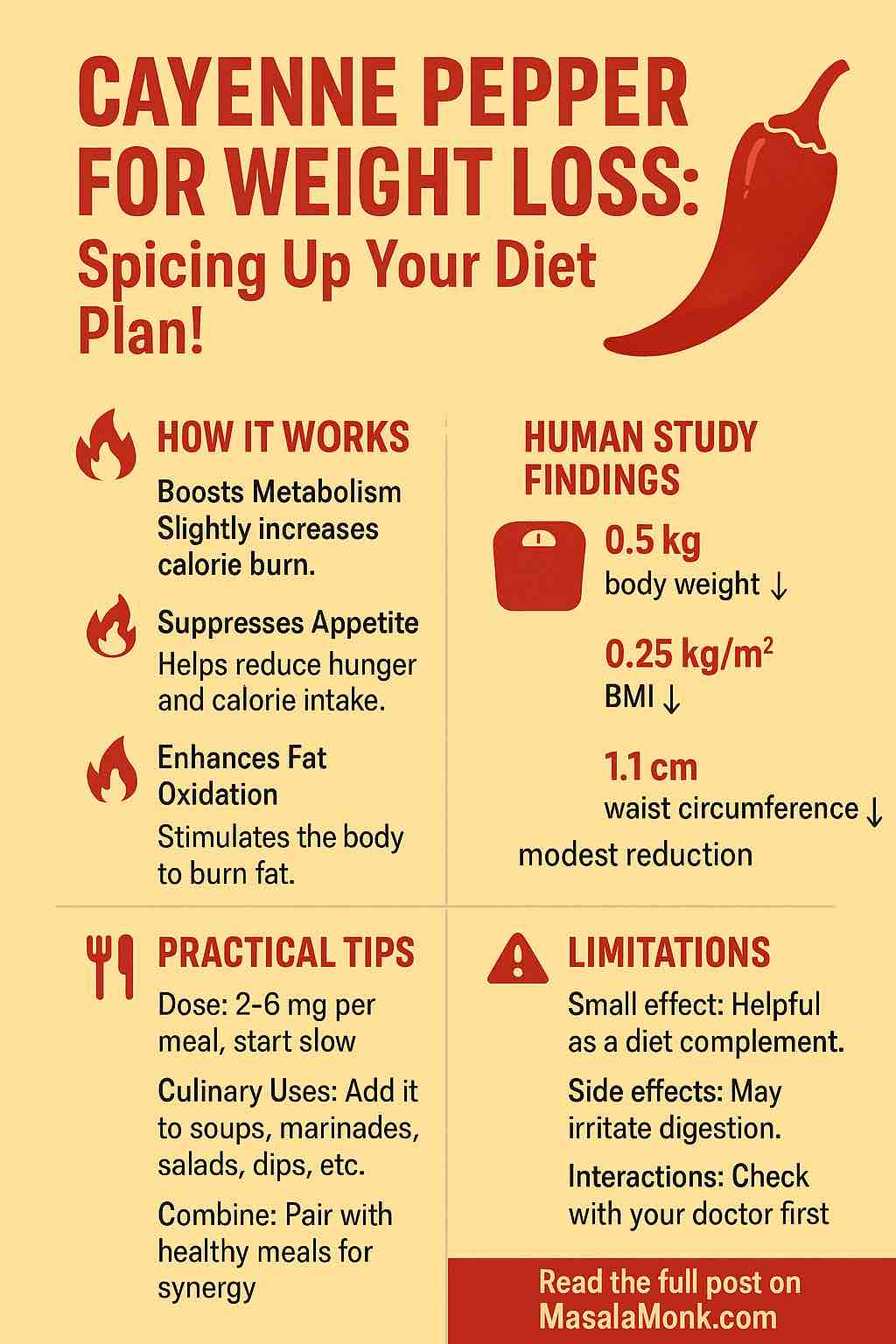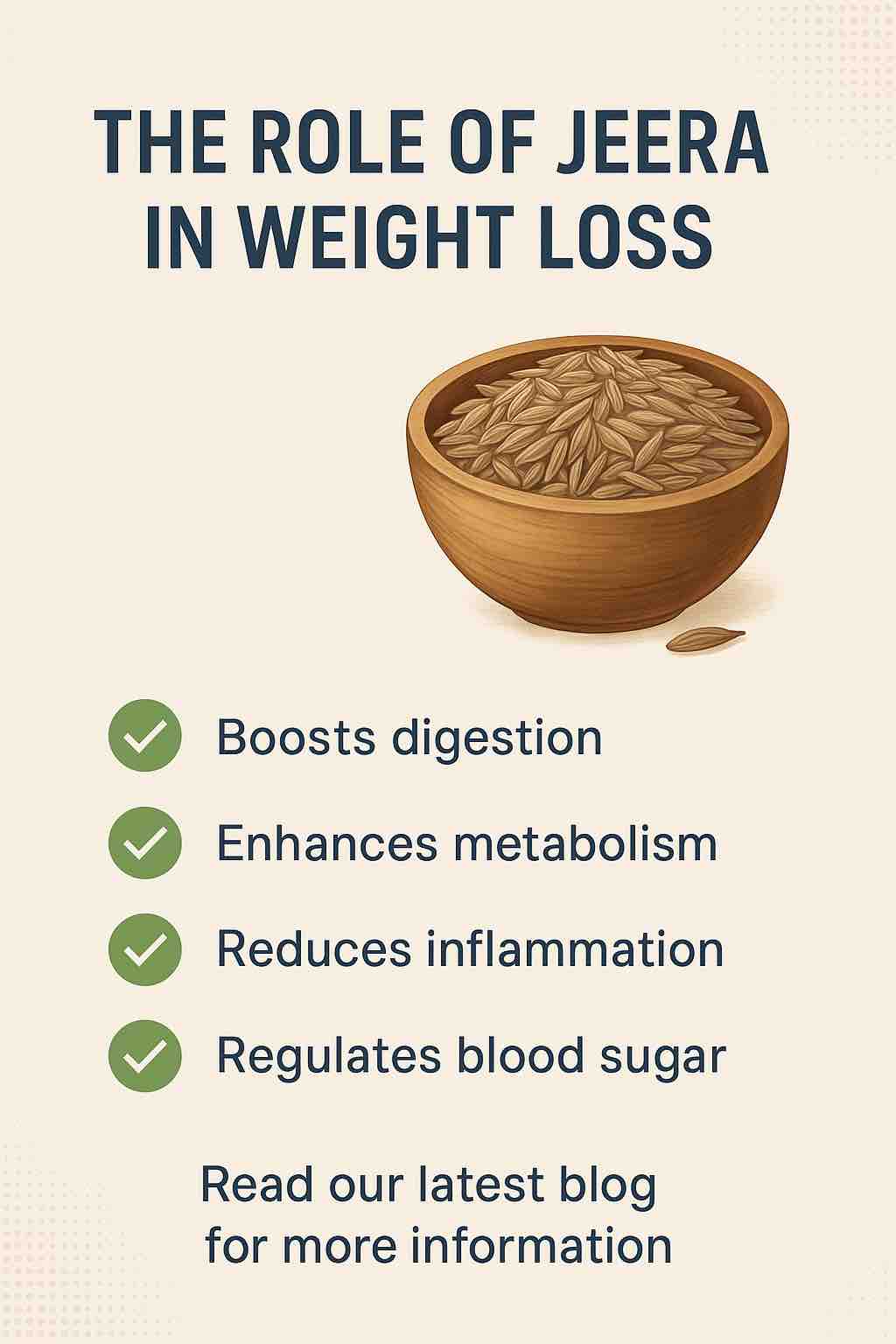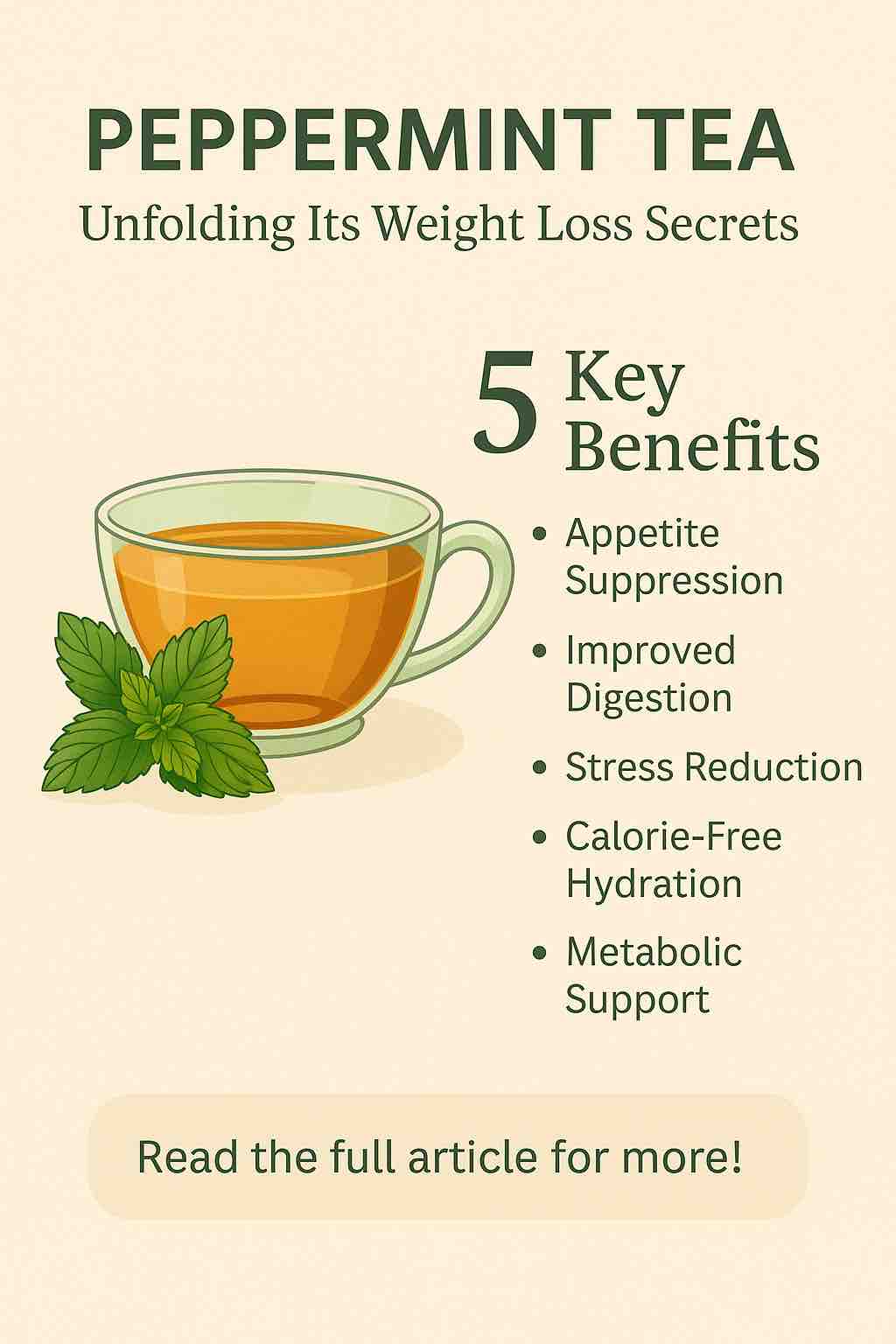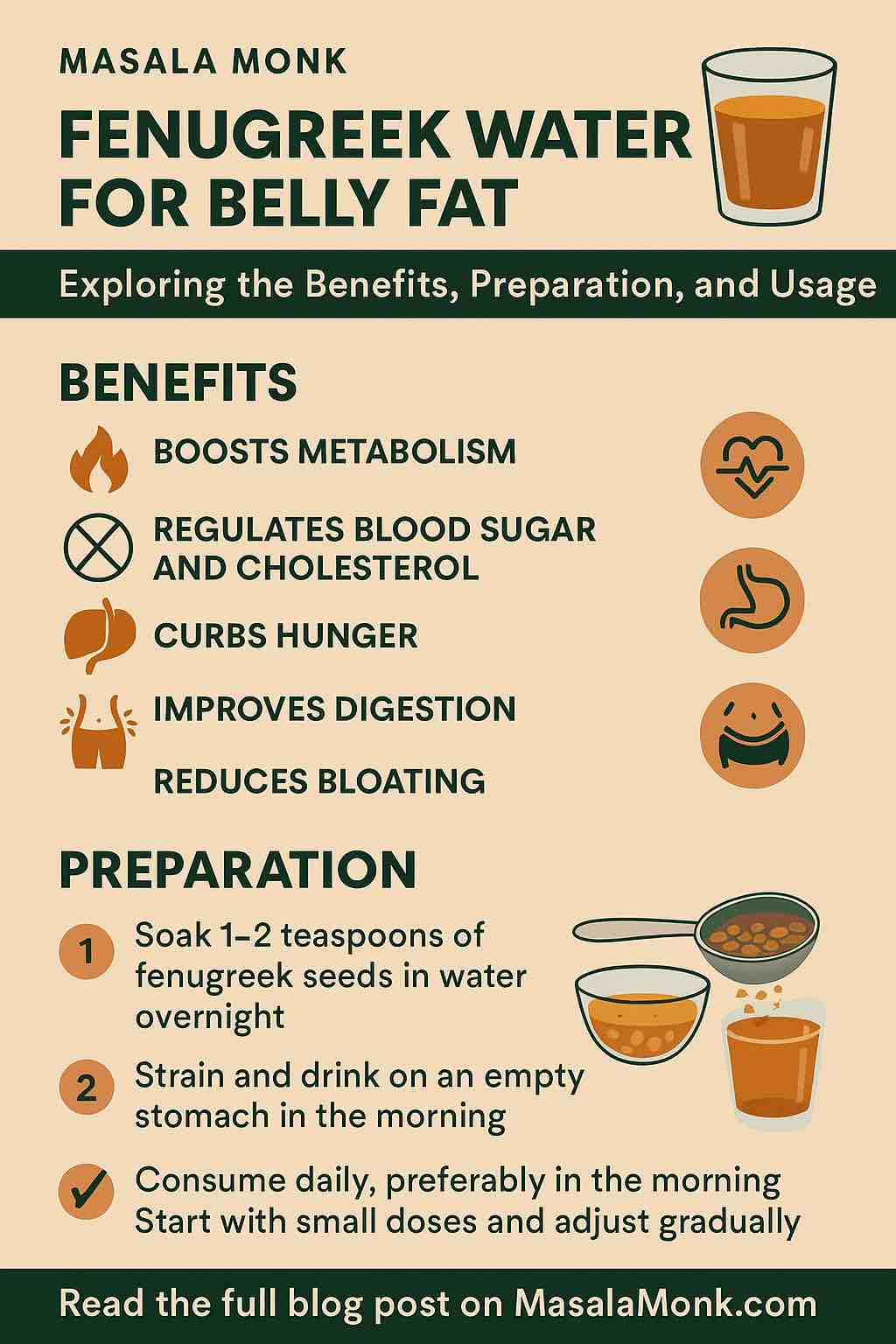
In the ever-evolving world of wellness, natural remedies continue to capture attention for their holistic and low-risk benefits. Among these, fenugreek water (or methi water) has emerged as a popular option for those seeking to support weight loss, especially targeting stubborn belly fat. Backed by both tradition and growing scientific interest, this humble seed may offer more than just flavor to your curries.
This blog post dives deep into what fenugreek water is, why it’s beneficial, how to prepare and use it effectively, and offers extended insights for practical daily integration.
What Is Fenugreek Water?
Fenugreek is a small, golden-brown seed with a slightly bitter taste and a long history in Ayurvedic medicine. Soaking the seeds overnight in water creates a nutrient-rich infusion known as fenugreek water. This drink, when consumed regularly, is believed to enhance digestion, regulate metabolism, and support fat loss goals.
Why Belly Fat Matters
Excess fat around the abdomen isn’t just about aesthetics—it’s closely linked to metabolic dysfunctions such as:
- Type 2 diabetes
- Cardiovascular disease
- Hormonal imbalances
- Insulin resistance
Belly fat is particularly harmful because it includes visceral fat, which surrounds internal organs and triggers systemic inflammation. Thus, reducing belly fat can lead to a significantly healthier metabolic profile.
Benefits of Fenugreek Water for Belly Fat
1. Appetite Suppression and Satiety
Fenugreek contains a unique soluble fiber—galactomannan—that absorbs water and expands in the stomach. This effect creates a feeling of fullness, which naturally curbs overeating and unhealthy snacking.
Scientific trials suggest that fenugreek fiber supplementation significantly reduces hunger levels and total daily caloric intake, especially in overweight individuals.
2. Improved Digestion and Bloating Reduction
Digestive issues like gas, constipation, and bloating can make the belly appear larger and heavier. Fenugreek’s fiber content supports regular bowel movements and reduces gastrointestinal discomfort, leading to a flatter, healthier midsection over time.
Additionally, better digestion means more efficient nutrient absorption, which supports overall metabolic health.
3. Blood Sugar and Insulin Control
Stable blood sugar levels are crucial for fat metabolism. Fenugreek contains trigonelline and 4-hydroxyisoleucine, compounds known to improve insulin sensitivity and slow carbohydrate absorption.
By preventing sudden blood sugar spikes and crashes, fenugreek water reduces cravings and lowers the risk of excess glucose being stored as abdominal fat.
4. Cholesterol and Fat Metabolism Support
Fenugreek seeds have a natural ability to reduce LDL (bad cholesterol) and increase HDL (good cholesterol). Their saponin and flavonoid content helps break down triglycerides and promotes the use of fat for energy.
This leads to a more efficient metabolism, which over time contributes to decreased fat storage—especially in the belly region.
5. Anti-Inflammatory and Antioxidant Effects
Chronic inflammation plays a silent but significant role in weight gain and fat retention. Fenugreek is packed with antioxidants and anti-inflammatory compounds that help neutralize oxidative stress and support hormonal balance.
Lowering inflammation improves everything from gut health to energy levels and supports a more active lifestyle that’s essential for fat loss.
How to Prepare Fenugreek Water (3 Easy Methods)
Method 1: Overnight Soak (Most Common)
Ingredients:
- 1 to 2 teaspoons of fenugreek seeds
- 1 cup (250 ml) of water
Instructions:
- Soak the seeds in water overnight (6-8 hours).
- In the morning, strain and drink the water.
- Optional: Chew the soaked seeds for added fiber and nutrients.
This method is convenient and gentle on the digestive system. It’s best for those just starting their fenugreek routine.
Method 2: Warm Fenugreek Tea
Instructions:
- Soak seeds for a few hours to soften.
- Boil the mixture for 5-10 minutes.
- Strain and sip warm.
Adding lemon juice or a dash of cinnamon can amplify metabolic benefits while balancing the bitterness.
Method 3: Fenugreek and Ajwain Combo
This method enhances digestion and reduces water retention.
Instructions:
- Soak 1 tsp each of fenugreek and ajwain seeds in water overnight.
- Boil the mixture, strain, and consume on an empty stomach.
Ajwain complements fenugreek by promoting deeper digestive detox and reducing bloating.
When and How to Take Fenugreek Water
- Timing: Drink on an empty stomach in the morning to maximize absorption and support appetite control throughout the day.
- Dosage: Start with 1 teaspoon of seeds soaked in 1 cup of water. Gradually increase to 2 teaspoons if tolerated well.
- Frequency: Once daily is sufficient. If your body responds well, it can be consumed again before dinner or bedtime for added benefit.
Combining Fenugreek Water with Lifestyle Practices
To truly tackle belly fat, fenugreek water must be part of a comprehensive wellness plan. Here’s how to integrate it effectively:
1. Smart Nutrition
Adopt a diet rich in whole foods—especially lean protein, healthy fats, and fiber. Avoid processed sugars and refined carbs that cause insulin spikes and abdominal fat storage.
2. Strength and Cardio Workouts
Combine weight training with high-intensity interval training (HIIT) to enhance fat burn and preserve muscle mass. A strong core workout 3–4 times a week will help tighten abdominal muscles.
3. Hydration and Sleep
Drink plenty of water throughout the day. Lack of hydration slows metabolism and increases cravings. Prioritize 7–9 hours of sleep to regulate cortisol and growth hormone, both of which influence fat storage.
4. Mindful Eating and Stress Reduction
Stress-related eating is a leading cause of belly fat. Use mindfulness techniques like deep breathing or journaling to build awareness around hunger and emotions.
Potential Side Effects & Precautions
While fenugreek water is generally safe, keep these considerations in mind:
- Digestive Issues: Overconsumption can lead to bloating or diarrhea. Start with small quantities and monitor.
- Hypoglycemia Risk: Individuals on blood sugar-lowering medications should consult their doctor as fenugreek may enhance insulin effects.
- Hormonal Interactions: Due to its phytoestrogen content, pregnant women or those with hormone-sensitive conditions should avoid or seek medical guidance.
- Medication Interactions: Fenugreek may potentiate the effects of certain drugs for diabetes, blood pressure, or cholesterol.
Final Thoughts
Fenugreek water stands out as a simple yet potent natural remedy that supports belly fat reduction through multiple mechanisms: satiety, digestion, blood sugar regulation, and inflammation control. While it won’t replace exercise or a healthy diet, it can amplify the results of those efforts.
By making fenugreek water a consistent part of your morning ritual—and aligning it with conscious lifestyle choices—you empower your body to shed visceral fat, boost metabolism, and move closer to your health goals.
So go ahead—soak those seeds tonight and begin each day with this powerful infusion of ancient wisdom and modern science.
Disclaimer: This post is for informational purposes only and does not constitute medical advice. Always consult a healthcare provider before beginning any new health regimen.
🔍 Frequently Asked Questions
1. Can fenugreek water specifically reduce belly fat?
While fenugreek water doesn’t target belly fat alone, it helps reduce overall body fat by regulating blood sugar, curbing appetite, and improving digestion—all of which indirectly support belly fat loss.
2. How long should I drink fenugreek water before seeing results?
Most users notice reduced bloating within a few days. For fat loss and visible changes, give it 3–4 weeks of consistent use along with proper diet and exercise.
3. Should I drink fenugreek water hot or cold?
You can drink it either way. Warm water may aid digestion more effectively, while cold or room temperature versions are more palatable in warmer climates.
4. Can I consume fenugreek water twice a day?
Yes, but begin with once daily. If well-tolerated, a second dose before dinner or bed can enhance its effects, especially for blood sugar regulation.
5. Is it necessary to chew the soaked seeds?
Not mandatory, but chewing the soaked seeds provides additional fiber and nutrients. If the taste is too strong, feel free to discard them after straining.
6. Can fenugreek water be used during intermittent fasting?
Yes. Since it contains minimal calories, fenugreek water typically doesn’t break a fast and may actually improve fasting benefits like appetite control.
7. Are there any people who should avoid fenugreek water?
Yes. Pregnant women, individuals on blood sugar medication, or those with hormone-sensitive conditions should consult a doctor before starting.
8. Can fenugreek water cause side effects?
In some, it may cause bloating, gas, or diarrhea—especially if consumed in large quantities. Start with small amounts and adjust based on tolerance.
9. Can I add lemon or other herbs to my fenugreek water?
Absolutely. Lemon, ginger, ajwain, and cinnamon are popular additions that can boost digestive and metabolic benefits.
10. How is fenugreek water different from fenugreek supplements?
Fenugreek water is more natural and gentle, ideal for daily use. Supplements offer concentrated doses but may pose greater risk for side effects and interactions.

